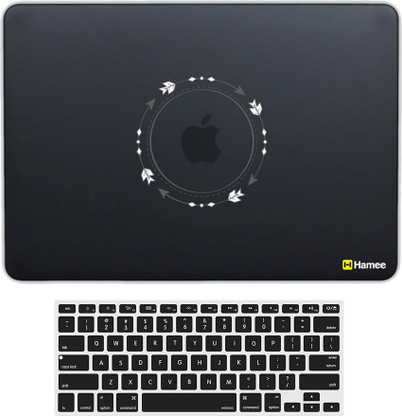


#2015 macbook pro retina 13 1080p
The closest Windows competitor was the 1080p non-touch version of the Dell XPS 13, which lasted 11:42.īy comparison, the Dell XPS 13 with touch and an UltraHD display lasted 7:24, the ATIV Book 9 lasted 7:54, the Yoga 3 Pro, 6:29, and the Asus UX305, 9:38.Īpple's laptops don't come cheap, and the MacBook Pro is no exception. That's nearly 4.5 hours longer than the average ultraportable (7:31), and on a par with the 2014 MacBook Air (12:22). MORE: 10 Laptops with the Longest Battery Life Like the 2014 model - which lasted 10 hours and 44 minutes on the Laptop Battery Test (Web surfing via Wi-Fi) - the 2015 MacBook Pro with Retina exceeded Apple's estimates, lasting a superb 12 hours and 4 minutes. The 2015 MBP scored a similar 20 fps, but updates to WoW have made it a more demanding game in the intervening time.Īpple claims the MacBook Pro will get up to 10 hours of battery life when browsing the Web, an hour longer than last year's version.
#2015 macbook pro retina 13 full
Bumping the effects to Full dropped the score to 17 fps, and increasing the resolution to its native 2560 x 1600, dropped it further, to just 12 fps.Īt its native resolution (2560 x 1600p), the 2014 MacBook Pro averaged 22 fps with the graphics on Autodetect.
#2015 macbook pro retina 13 mac
On our World of Warcraft test, the Mac managed just 24 fps with the resolution at 1920 x 1200 and the effects on Good. Still, the integrated GPU shows its limits with displays higher than 1080p. On the Cinebench openGL test, the 2015 MBP's score of 29 was 8 points higher than last year's model, on a par with the XPS 13 (29.43), and well above the category average of 16. Most other Broadwell-powered notebooks with integrated graphics use Intel's 5000-series level GPU Apple offers a little extra oomph with an Intel Iris Graphics 6100 GPU and 15GB of memory. That showing also demolishes the competition the XPS 13 (154.2 MBps), the Lenovo (175 MBps) and the Samsung (221.3 MBps) were all much slower. The 2015 MacBook Pro duplicated 4.97GB of multimedia files in 13.2 seconds, a rate of 386 MBps, whereas the 2014 model was 185.7 MBps. The MacBook Pro's 13.3-inch, 2560 x 1600-pixel display is crisp and far brighter than almost every other notebook we've tested.Īccording to Apple, the 128GB PCI-based flash memory in the 2015 MacBook Pro is up to two times faster than last year's model, and in our testing, nearly lived up to the claim. I had to be more careful when pressing down, but activating tap-to-click (a feature I regularly use on other notebooks) helped alleviate inadvertent Force Touches. After trying all three levels, I preferred the lightest setting not only was it easier on my fingers, but it also made less noise. I'm glad you can adjust the force required to press down on the touchpad. but press a little harder, and you feel the second click, which engages the extra features. When you press on the pad, you first feel the click of the first layer - which lets you select text, icons, etc.

The Force Touch takes a little adjustment. However, Apple is releasing the API for Force Touch, so expect it to be available for more applications in the future. For example, it's not compatible with Google Docs, and it doesn't work in other browsers, such as Chrome. However, Force press doesn't work everywhere. When in the Web version of Outlook, Force-pressing on a word displayed its definition in a pop-up window. In Facebook, pressing on a news post opened the article in a second smaller window - too small to be practical to read -but it also let me add the article to my Reading List.

For example, in Safari, I clicked on Kathy Griffin's name, and a small window appeared with a WIkipedia summary. The second benefit of the Taptic Engine is that it has two levels of sensitivity, which lets you deep-press to activate additional features.


 0 kommentar(er)
0 kommentar(er)
